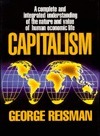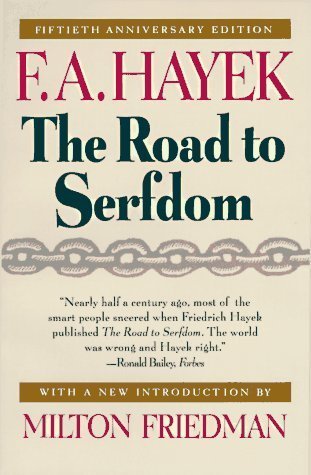
Capitalism and Freedom
Book Description
What if the key to unlocking human potential lies in the hands of free markets? Milton Friedman’s 'Capitalism and Freedom' boldly challenges the status quo, weaving a powerful narrative that intertwines economic theory with the fabric of individual liberty. As nations grapple with the tension between government control and personal freedom, Friedman delivers a gripping exploration of choices that can reshape societies. With passionate prose, he argues for a world where capitalism fuels not just wealth, but genuine human empowerment. Can true freedom emerge in a sea of regulation, or is it a distant dream?
Quick Book Summary
"Capitalism and Freedom," by Milton Friedman, is an influential treatise exploring the intricate relationship between economic systems and individual liberty. Friedman contends that political freedom cannot exist without economic freedom, and that capitalism—characterized by voluntary exchanges in free markets—is the most effective mechanism for safeguarding both prosperity and personal choice. The book critiques the expanding role of government in economic affairs, arguing that most interventions undermine efficiency and individual autonomy. Friedman addresses topics like monetary policy, education, social welfare, and occupational licensing, using a mix of theory and real-world examples to make a compelling case for limiting state power. Ultimately, he suggests that a society grounded in free-market principles not only maximizes wealth but also cultivates the conditions necessary for genuine human empowerment and democratic governance.
Summary of Key Ideas
Table of Contents
Connection between Economic and Political Freedom
Friedman begins by asserting that economic freedom is a prerequisite for political freedom. He argues that in societies where the government controls economic resources, it inevitably gains the power to restrict political and personal liberties. According to Friedman, free markets—where transactions are voluntary and competition thrives—form the foundation upon which individual rights and democratic institutions are built. Without the decentralization provided by markets, citizens become increasingly dependent on the state, jeopardizing both their autonomy and capacity for dissent.
Dangers of Government Intervention
One of Friedman’s central themes is the inherent danger of government intervention in the economy. He critiques policies such as price controls, minimum wages, tariffs, and agricultural subsidies, illustrating how such measures distort markets and create inefficiencies. He maintains that regulation often serves special interests rather than the public good, and that the expansion of state functions—albeit well-intentioned—frequently results in unintended negative consequences, from stifled innovation to reduced individual responsibility.
Role of Free Markets in Social Welfare
Friedman turns to the social responsibilities often ascribed to markets, especially concerns regarding poverty and inequality. He contends that free-market mechanisms, when properly designed and left to operate, alleviate poverty more effectively than heavy-handed welfare systems. For marginalized groups, the competition inherent in capitalism offers the most promising route to upward mobility. Friedman does acknowledge some need for government in correcting market failures—for instance, through anti-monopoly laws or limited social safety nets—but he insists these roles should be clearly defined and narrowly tailored.
Education, Vouchers, and Competition
Education receives particular attention as Friedman proposes school vouchers and the introduction of competition into public schooling. He criticizes standardized and centrally managed educational systems for favoring conformity over excellence and suggests that parental choice via vouchers will incentivize schools to innovate and improve quality. This decentralized approach, Friedman argues, would empower families while holding institutions accountable for their outcomes.
Monetary Policy and Government Control
Finally, Friedman addresses monetary policy, advocating for a rules-based approach over the discretionary actions of central banks. He believes that erratic government interventions in money supply and interest rates are often destabilizing, leading to cycles of inflation and recession. By establishing simple, consistent principles—such as a steady increase in the money supply—Friedman sees a path toward both economic stability and greater predictability in business and consumer life. This, in his view, completes the case for sharply limiting government’s economic role, freeing society’s creative potential.
Download This Summary
Get a free PDF of this summary instantly — no email required.





